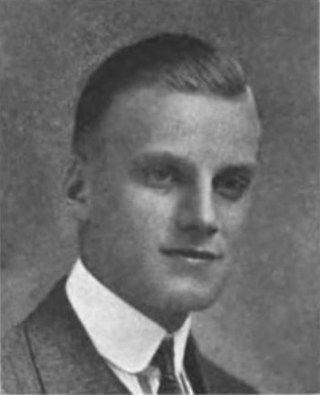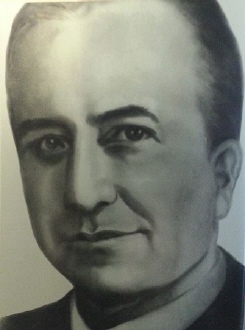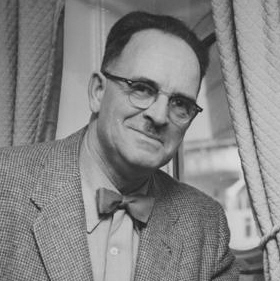Related Research Articles

Ottawa is a city in and the county seat of LaSalle County, Illinois, United States. It is located at the confluence of the navigable Fox River and Illinois River, the latter being a conduit for river barges and connects Lake Michigan at Chicago, to the Mississippi River, and North America's 25,000 mile river system. The population estimate was 18,668, as of 2022. It is the principal city of the Ottawa, IL Micropolitan Statistical Area.

The Ottawa Rough Riders were a Canadian Football League team based in Ottawa, Ontario, founded on September 19, 1876. Formerly one of the oldest and longest-lived professional sports teams in North America, the Rough Riders won the Grey Cup championship nine times. Their most dominant era was the 1960s and 1970s, in which they won five Grey Cups. The team's fortunes waned in the 1980s and 1990s, and they ultimately ceased operations following the 1996 season. Five years later, a new CFL team known as the Ottawa Renegades was founded, though they suspended operations in 2006. The Ottawa Redblacks, which own the Rough Riders and Renegades intellectual properties, joined the league in 2014.
The 1935 Quebec general election was held on November 25, 1935, to elect members of the Legislative Assembly of the Province of Quebec, Canada. The incumbent Quebec Liberal Party led by Louis-Alexandre Taschereau was re-elected, defeating the Action libérale nationale, led by Paul Gouin, and the Quebec Conservative Party, led by Maurice Duplessis.

Peter John Veniot, was a businessman and newspaper owner and a politician in New Brunswick, Canada. He was the first Acadian premier of New Brunswick.

Ottawa—Vanier is a federal electoral district in Ontario, Canada, that has been represented in the House of Commons of Canada since 1935. Previous to that date, it was part of the Ottawa electoral district that returned two members.

Cochrane is a town in the Calgary Metropolitan Region of Alberta, Canada. The town is located 18 km (11 mi) west of the Calgary city limits along Highway 1A. Cochrane is one of the fastest-growing communities in Canada, and with a population of 32,199 in 2021, it is one of the largest towns in Alberta. It is part of Calgary's census metropolitan area and a member community of the Calgary Metropolitan Region Board (CMRB). The town is surrounded by Rocky View County.

Arthur Ellis was a Canadian lawyer and politician. He was mayor of Ottawa from 1928 until 1929.
Monique Bégin was a Canadian academic and politician.

The Ottawa-Carleton District School Board refers to both the institution responsible for the operation of all English public schools in the city of Ottawa, Ontario and its governing body. Like most school boards, the OCDSB is administered by a group of elected trustees and one director selected and appointed by the Board itself. Additionally, annually, two student trustees are selected per provincial regulation.
Yvonne O'Neill was a politician from Ontario, Canada. She was a Liberal member of the Legislative Assembly of Ontario from 1987 to 1995. She represented the riding of Ottawa–Rideau.

Frank Henry Plant was a Canadian businessman and politician. Plant served as mayor of Ottawa from 1921 to 1923 and in 1930. He also served on Ottawa Council from 1917 until 1921 and from 1925 until 1930.
J. E. Stanley Lewis was Ottawa's second longest-serving mayor, holding that position from 1936 to 1948.
Edward H. Hinchey was mayor of Ottawa, Ontario, Canada in 1912.
Beverly is a former urban municipality within the Edmonton Capital Region of Alberta, Canada. Beverly was incorporated as a village on March 22, 1913 and became the Town of Beverly on July 13, 1914. It later amalgamated with the City of Edmonton on December 30, 1961. The population of Beverly was 8,969 at the time of amalgamation.
Joseph-Albert Pinard was an Ontario political figure. He represented Ottawa East provincially in the Legislative Assembly of Ontario from 1914 to 1929; as a Liberal until October 1926 and then winning reelection as an Independent-Liberal in the December 1926 election. He represented Ottawa East federally in the House of Commons of Canada from 1936 to 1945 as a Liberal member but was defeated in 1945 and 1949 when he ran as an Independent Liberal.
Andrew Bailey Tommy Sr. was a star professional Canadian football player for eleven seasons for the Ottawa Rough Riders and one season for the Toronto Argonauts. Tommy led his team to two Grey Cup wins, in 1940 and 1945. He was inducted into the Canadian Football Hall of Fame in 1989 and into the Canada's Sports Hall of Fame in 1976.
Michel Chrétien is a Canadian medical researcher specializing in neuroendocrinology research at the Institut de recherches cliniques de Montréal, or Clinical Research Institute of Montreal, (IRCM). He is a younger brother of former Canadian prime minister, Jean Chrétien.
Compeer is a hamlet in east-central Alberta, Canada within Special Area No. 4. Previously an incorporated municipality, Compeer dissolved from village status on December 31, 1936, to become part of the Municipal District of Neutral Hills No. 331.

Cecil Charles Duncan was a Canadian ice hockey administrator. He served as president of the Canadian Amateur Hockey Association (CAHA) from 1936 to 1938 and led reforms towards semi-professionalism in ice hockey in Canada. He served as chairman of the CAHA committee which proposed a new definition of amateur to eliminate what it called "shamateurism", in the wake of Canada's struggles in ice hockey at the 1936 Winter Olympics. He negotiated a series of agreements to protect the CAHA's interests, and to develop relationships with all other areas of the world where hockey was played. The agreements allowed the CAHA to become independent of the Amateur Athletic Union of Canada which wanted to keep the old definition of pure amateurism. Duncan's reforms also returned the CAHA to affluence after four years of deficits during the Great Depression and increased player registrations in Canada.

William Bryden George, also known as Baldy George, was a Canadian sports administrator and agriculturalist. He was president of the Canadian Amateur Hockey Association from 1952 to 1955, when Canada debated whether it would withdraw from the Ice Hockey World Championships and the Olympic Games. At issue was the perceived financial exploitation of the Canada men's national ice hockey team and abuse from European media on the Canadian style of physical play. He wanted a financial guarantee for the national team when it travelled since its participation increased attendance at events in Europe. Canada did not participate at the World Championships in 1953 and placed second in 1954, which led to heavy criticism by media in Canada for the failure to win. Although Canada won the 1955 Ice Hockey World Championships, George questioned future participation and was concerned that the game in Europe took on political and religious meanings in which Canada did not want to become involved.
References
- Ottawa Citizen, December 8, 1936
